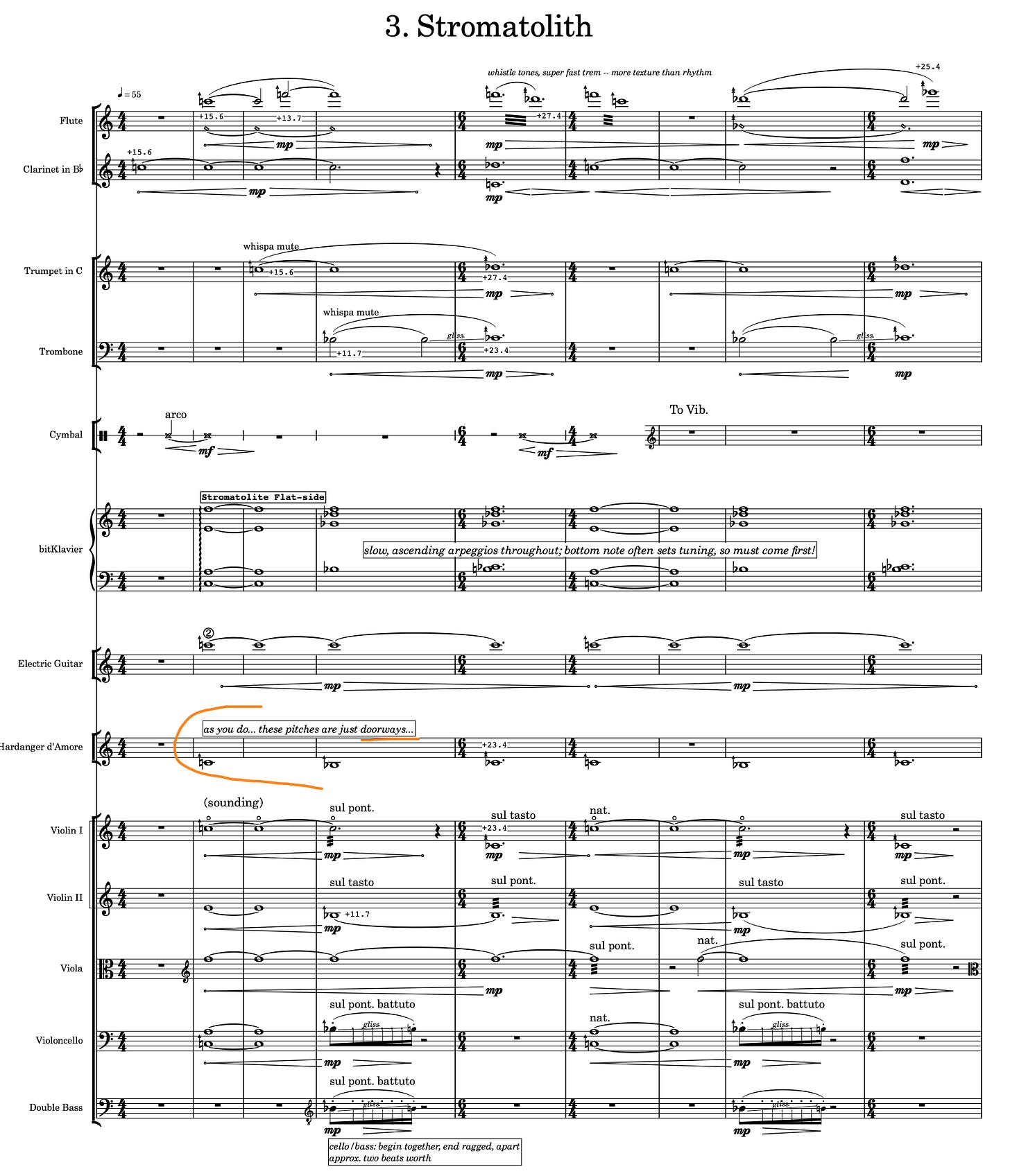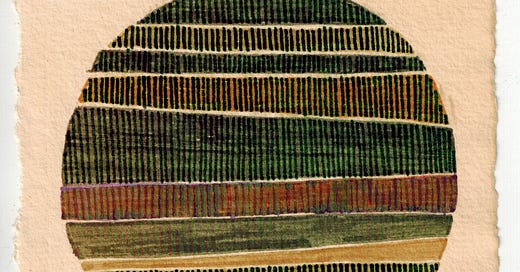“Stromatolith,” movement 3 from Midden Find, is a noisy little primeval chorale. My favorite kind.
“Stromatolith,” movement 3 from Midden Find
- Caoimhín Ó Raghallaigh, Hardanger d’Amore
- Contemporaneous, conducted by David Bloom
- Co-composed by Caoimhín Ó Raghallaigh and Dan Trueman
- Orchestral setting by Dan Trueman
- Recorded, Mixed, and Mastered by Matt Poirier
from the album Stromatoliths, on Many Arrows Music
My jaw slowly dropped while sitting in the control room listening to Caoimhín record his solo part for this piece. Matt Poirier, our delightful engineer, turned to me, mouthing “what is happening???”
One of the beauties of truly collaborating, and getting lost in a project without feeling the need to be fully in control, is when it becomes something truly unexpected. That’s what happened in that moment, and I have to say that, of the many things I have ever been part of making, this is one of my absolute favorites.
The starting point for this one was a Prelude for bitKlavier by the same name, which is in the background for this entire piece: a short little chorale, with a gently oscillating set of just-tuned chords. I orchestrated the chorale out for Contemporaneous (so much fun!), but rather than work out a specific part for/with Caoimhín, I just asked him to do what he heard or was inspired by, and gave him some pitches that are in the orchestra part for him to consider as references, to use or ignore as needed (“doorways” as I put it in the score, below):

One of the things I’ve always loved about Caoimhín’s playing is the way he shapes every note—each one a crafted object, with color, rough edges, sounds within the sounds, a glow into its surrounding space… an entire little universe, or an ancient oddly shaped comet zipping by the solar system on its way to the outer reaches. You can hear that in so much of his playing, but here is a lovely example:
In “Stromatolith” he took this to a remarkable extreme, one that I find so expressive and beautiful, and also mysterious (I mean, I play the Hardanger d’Amore myself, and I’ve performed this piece, but I had no idea how he was doing this!)—it felt like some kind of deep archeology, where he was extracting secrets from the music that none of us knew existed, but that had been around for millennia.
And… the rest of the score for “Stromatolith:”






Wow. I don't think I've heard Caoimhín play in "Lachenmann" mode like this. The control and sonic sculpting is amazing! And that ending...
Truly stunning, Dan. I can't wait to hear the whole album.